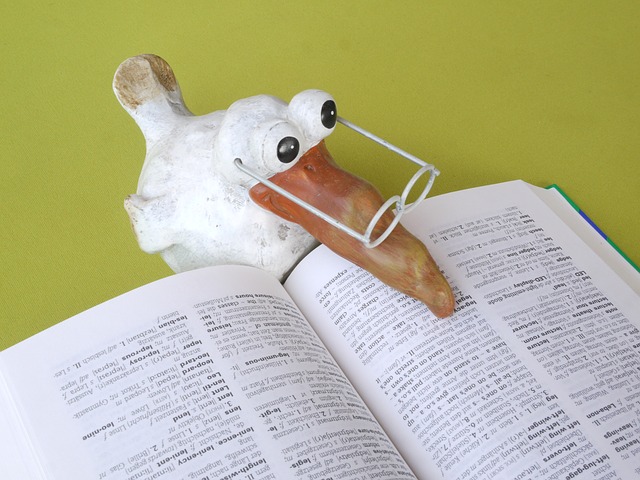Product and project management are both organizational functions, but the differences come in the tasks they carry out and their duration. One major difference between both concepts is that project management is short-term, while product management is long-term.
Some people say that project management is a sub-set of product management, and they are not wrong. But, typically, during product management, strategies are broken down into smaller projects, which is where project management comes to play.
For example, a fashion brand decides to launch its new men’s shoes. A product manager is in charge of this new product, managing it to ensure a lasting lifecycle. So, the product manager comes up with different marketing strategies, and one could be having an activation activity for the product in the northern region of this city. In such a case, the activation activity becomes a new project, and a project manager is assigned to this task.
Therefore, the project manager begins to look for ways to ensure that the activation is successful. And, the work of the project manager ends after the activation activity. However, the product manager’s work continues, as his duty entails ensuring a long lifecycle for the shoes. If the product manager decides to take a break, the product will flop. We always advise business owners to keep in mind that their product is not the only one in the market space. You will have competitors, so the game is usually tight.
It is also important to note that different projects can go on simultaneously for a specific product. For example, while you might be having an activation activity in a specific region, you can also be surveying in another region while still running adverts in another region. All these are different projects that different projects managers can supervise. However, the overall supervisor is the product manager who sets the vision for the product.
Thus, you can say that the project manager reports to the product manager.
Here Is A Table Showing The Differences Between A Product And A Project Manager.
| Difference | Product Manager | Project Manager |
| Vision | A product manager sets the vision for the product. | Follows the vision and direction of the product manager |
| Duration | Product management is long-lasting, i.e., it lasts until the end of the product’s life cycle. | Project management is more specific and short-term. |
| Projects | A product manager typically sticks to managing one product at a time. | A project manager can manage different projects simultaneously. |
| Team Type | The members of the product management team are often full-time members. | The members of the project management team can be mixed up, consisting of strangers and part-time members. |
To succeed at either product or project management, some skills will come in handy. However, it is important to note that both concepts can share similar skills.
Skills Needed By A Product Manager

Some relevant skills for product management are:
1. Delegation Skills: Recall how we earlier established that the product manager is the overall supervisor, so they need delegation skills. When product manager comes up with strategies, they need to have sub-supervisors. So, the product manager checks within their teams and assigns these tasks based on team members’ strengths. Not only should the product manager be able to delegate and assign responsibilities, but they should also be able to follow up to ensure enforcement. The product manager is the leader, so they have to be strict when needed to ensure the product’s success. While delegating responsibilities, the product manager must be clear on expectations so that the sub-supervisors can succeed.
2. Research Skills: It is one thing for a business to launch a product, but it is another thing for that product to solve the needs of their consumers. Now, it is the job of the product manager to give recommendations on the best products that a business can launch, and they will need to do market research to get such insights. A product manager needs research skills to carry out effective market analysis. During this market analysis, the product manager looks out for unsolved needs of the audience and suggests products that can meet these needs. They also look at what their competitor is doing, taking notes of how their business can do better than competitors.
3. Interpersonal Skills: Interpersonal skills are an important skill that every product manager must possess as it leads to the products’ success. Yes, you may be wondering how this plays out. It is best to remember that the product manager works with many people, and the way the product manager relates with them will determine the energy they will put into the work. Having interpersonal skills entails being emotionally intelligent. The product manager should be observant to know when something is off with a team member and use the best method to get through to the team member.
4. Communication Skills: It is easy to mix up communication and interpersonal skills. We also agree that both of them are similar, but they also differ. Communication skills go beyond oral communication as it also entails written communication. It entails how the product manager communicates his thoughts and ideas to team members and even business stakeholders. The product manager has to give instructions and directions, and it is only possible with communication skills. When the product manager does not have effective communication skills, their subordinates become confused about instructions, affecting their productivity. Therefore, they end up doing the wrong thing, affecting the success of the product.
5. Marketing Skills: It would not be out of place if you describe a product manager as a low-key marketer. After all, if they think that a product would appeal to their consumers, they should market the product to the consumers. It would not make sense if a product does not make sales, so a product manager should have marketing skills. Understandably, the business may have a marketer. But, the product manager has to work hand-in-hand with the marketer or marketing department to boost sales of the product. It can only be possible when the product manager has top-notch marketing skills.
Skills Needed For Project Management
In a similar manner, here are some skills you will need for a successful project management execution
1. Conflict Management Skills: It is common knowledge that there are bound to be disagreements when working in teams. The project manager is the captain of the project management team and needs to have conflict management skills to resolve such issues. The project cannot be successful if team members are not in agreement, and it will dent his track record if the project flops. Therefore, a project manager needs to know how to resolve issues amicably.
2. Time Management Skills: We earlier mentioned that project management is time-specific. It means that there is usually a time frame for the project to be completed. Therefore, the project manager needs to work within that framing, or things will be out of place. Understandably, the timing might sometimes not be sufficient enough for the task. But, if a project manager has efficient time management skills, they will be able to schedule everything to work within the time frame.
3. Adaptability Skills: Every project manager needs to understand that things are susceptible to change. Thus, they also need to be adaptable. For example, a project manager might start on a task, and new software is developed that helps run the tasks. Then, the project manager should adapt to such a change and start using the platform. In addition, the world is a moving train that doesn’t wait for anyone. So, adaptability skills are necessary for project management.
4. Problem-Solving Skills: The project at hand is usually the problem that the project manager needs to solve. But, how will they accomplish this if they do not have problem-solving skills? However, when project managers have efficient problem-solving skills, they can think up different ways to overcome the hurdle. It is said that there are usually different approaches to a matter, and it comes in handy for project managers. If one way doesn’t work, they need to come up with other ways.
5. Negotiation Skills: Every business owner strives to get the best pricing, affecting project managers. As a project manager, you will work with different vendors, and you need to have negotiation skills to get the best prices from them. Sometimes, the business may not allocate huge sums for projects, so the project manager needs to work within the budget. And, it will not be possible if they do not have good negotiation skills.
FAQs
Below are some of the frequently asked questions about product and project management:
What Is The Difference Between A Product And A Project?
A product usually refers to the goods and services that a business offers its customers to solve a need. However, a project refers to a short-term activity that goes on to boost a project. Also, the team usually disbands at the end of a project.
Is Project Management The Same As Product Management?
As you can see above, project management is a different concept from product management in terms of its functions. However, they work together in some areas.
Do Product Managers Need To Code?
As a product manager, you do not need to know to code. But, it would come in handy if you have basic knowledge of coding.
Conclusion
Product and project management usually work together, so it is easy to mix them up. But, they differ in job functions, and their skills may also be different. So, do not mix them up again.
References:
1. https://www.productplan.com/learn/product-management-versus-project-management/
2. https://www.koombea.com/blog/the-difference-between-product-and-project-management/
Last Updated on February 8, 2022 by

Magalie D. is a Diploma holder in Public Administration & Management from McGill University of Canada. She shares management tips here in MGTBlog when she has nothing to do and gets some free time after working in a multinational company at Toronto.





